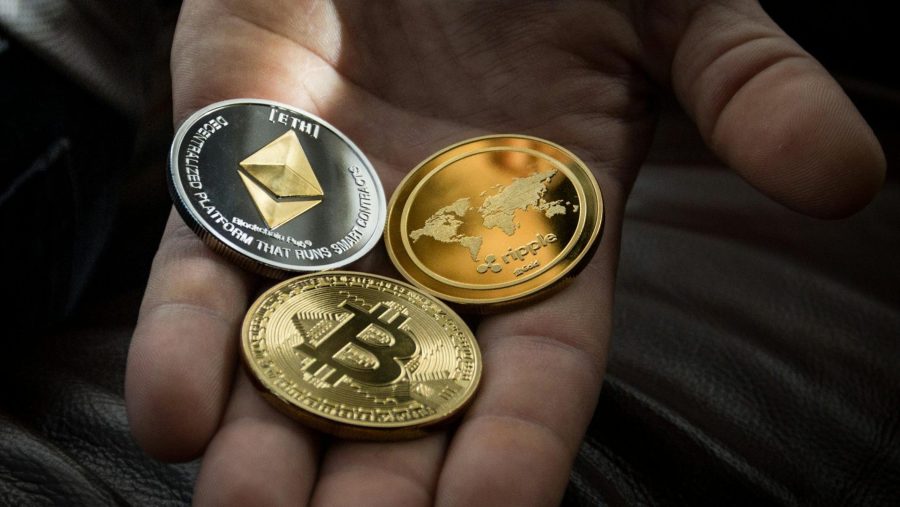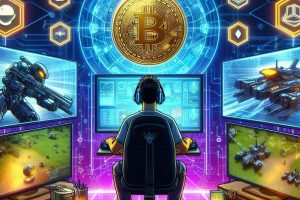Cryptocurrency and blockchain technology have become trending and innovative in the gaming industry due to the incorporation of these technologies in video games. Thus, with the use of crypto assets in the gaming industry, new economic models, higher levels of ownership and security can be provided. Yet, this new development comes with some difficulties, such as technical issues, legal issues and the influence of fluctuations in the market. This article looks into the advantages and disadvantages of incorporating crypto assets into video games and what this may imply in the future of gaming.
Rising Crosspoints of Crypto Assets and Gaming
As the gaming industry is constantly growing, more and more developers are looking into using the potential of crypto assets in the gaming space. This concept of utilizing blockchain, cryptocurrencies and tokens such as BTC Bull in games is slowly becoming more popular, giving both gamers and game creators a new way to engage in the gaming world. Thus, games can offer decentralized economies where players have real ownership of the items, currencies and assets in the games by incorporating the crypto assets. This is not only revolutionizing the way that games are being designed and developed but also the way they generate revenue which has opened up a new age of gaming that combined both entertainment and finance.
Enhanced Player Ownership
Of all the ways through which it is possible to incorporate crypto assets into games, it is the greater feeling of ownership that comes with it that cannot be overlooked. Usually, in-game items and currencies belong to and are regulated by the game’s creators. Still, with the help of blockchain technology, players can really possess their digital assets that are safely kept at the blockchain. This implies that players are allowed to trade, sell or transfer their items outside the game’s virtual market hence empowering the players. This change of ownership is a positive one as it allows players to have more control and this in turn makes them more involved in the game.
Economic Opportunities
The crypto-assets adoption in video games brings new possibilities for economic activity for game creators. Thus, developers get a new source of income as they introduce cryptocurrencies within the game economy. For instance, they can earn commissions from the transactions made in the game’s marketplace and on the sales of NFTs related to in-game items. Furthermore, developers can use the play-to-earn models where players get a certain cryptocurrency for undertaking certain activities or reaching certain levels in the game. These new models of the economy can engage more people and retain the players, therefore increasing the profitability of the game.
Security and Transparency
Blockchain is an innovative technology that can assist in fighting dishonesty and cheating in video games. Through the use of the blockchain, all the transactions and ownership information of the game items and currencies are stored, making them unique and cannot be copied or modified. Such a degree of protection is critically needed in multiplayer games where the game currency is a key factor. In addition, the visibility of blockchain makes it possible to check the scarcity and genuineness of the assets and thus encouraging trust in the game’s environment and minimizing the chances of fraud.
Regulatory Hurdles
Thus, the integration of crypto assets into video games has numerous advantages and, at the same time, poses many legal questions. The legal framework in which cryptocurrencies and blockchain technology operate is quite mixed across the globe which is a source of considerable risk for stakeholders. The legal systems are still evolving and it is challenging for developers to meet the legal compliance when it comes to cryptocurrency, securities and consumer protection. If not, there are consequences that can be imposed like fines or bans that may affect the game’s success. As more countries change their policies regarding crypto assets, it will be crucial for developers to be aware of new rules and guidelines to prevent common mistakes.
Technical Challenges
When applying blockchain to current game engines, several technical issues are encountered. There is a challenge in incorporating blockchain’s decentralization and the smart contract in the gaming system. Also, the issue of the capacity of the blockchain networks since they must be able to accommodate numerous transactions without affecting the efficiency of the network. To avoid these challenges affecting the game and its players, developers must address the following technical issues with crypto assets integration. It could be crucial to rely on the help of blockchain specialists and apply the concept of the hybrid approach to succeed in the implementation of blockchain.

Market Volatility
The fact that the market of cryptocurrencies is very unstable is a noteworthy problem for games that involve cryptocurrency. This is because the virtual currencies and items that are used in the game may be linked to real-world cryptocurrencies and in this case, players may be affected by market volatility. A sharp depreciation of the value of a cryptocurrency may result in loss of value of players’ in-game assets and therefore, reduce their motivation to engage in the game and compromise the game’s economic balance. These are risks that developers have to think about when designing in-game economies and it might be necessary to have measures that will help to prevent fluctuations such as tying the in-game currency to a more stable asset or using stablecoins.
The Future of Crypto Assets
Based on the present development of cryptocurrencies and the game industry, there are several trends that may be observed in relation to crypto-assets integration into video games. A possible shift that can be identified is the shift towards Decentralized Gaming Platforms, where the players own their assets within the game and the game itself is owned by the players.






 Your total news and information resource for all things Science, Technology, Engineering / Mathematics, Art, and Medicine / Health.
Your total news and information resource for all things Science, Technology, Engineering / Mathematics, Art, and Medicine / Health.
Leave a Comment